Good grief. Is everyone staying dry? Staying sane? I actually made mozzarella yesterday, for the first time, in my quest for indoor activities. It was surprisingly quick, and I think it came out pretty good.

Homemade mozzarella cheese
But this blog is not about cheese. (1) It is about power outages, and specifically the impact of those outages on all of us. Palo Alto has been doing a much better job of reporting these outages -- yay for transparency -- and it seems they have been working hard to resolve issues as they come up. But this period of intense rain has inevitably resulted in some outages that have affected many of you, and I’d love to hear what impact those outages have had.
I ask this because one of the concerns people have with building electrification is that power outages might be more harmful. It’s one thing for your lights to go out but quite another for your heat to go out, especially if you live in a cold place. So for those of you who have done some electrification, and even for those of you who haven’t, what impacts do you feel most from any power outages you’ve experienced?
I’ll chime in since I’ve had two outages recently, a pretty short one during these storms and a longer one last month when the utility was replacing some poles in the area. My house is all-electric except for the stove, so it’s at least one data point.
The short outage happened overnight. It lasted 1-2 hours. I noticed only because the microwave was blinking when I got up. Often with these short outages, it’s not the actual outage that is a pain so much as is resetting everything afterwards. It’s especially bad when, say, a computer refuses to restart. But mostly it’s just a bunch of fiddly things, such as:
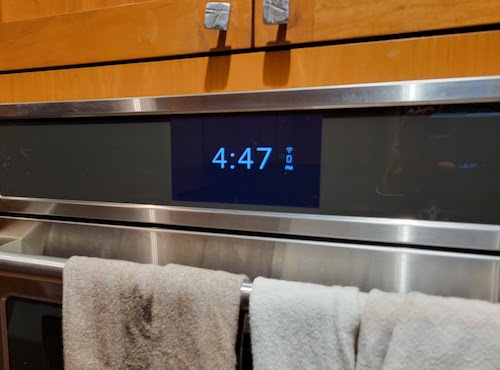
Appliance clocks need to be reset
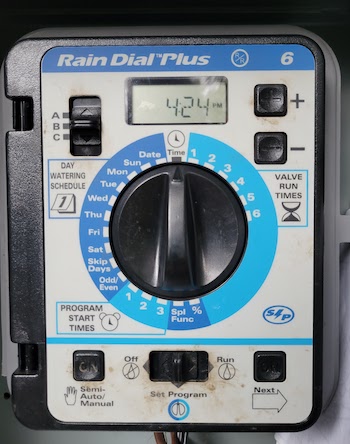
Irrigation boxes too
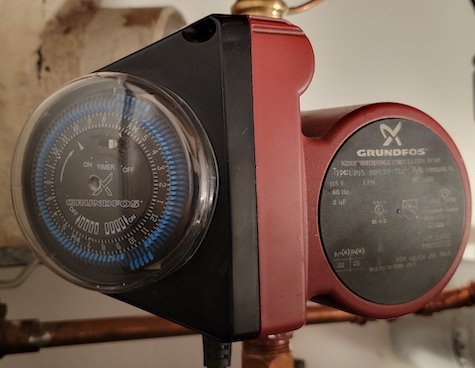
A timer on a recirc pump has to be adjusted
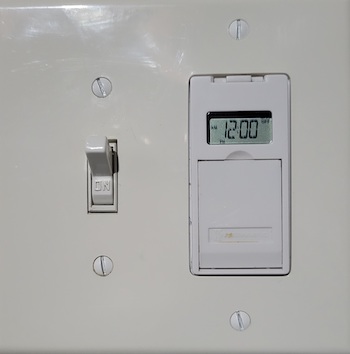
As do timers on some light switches
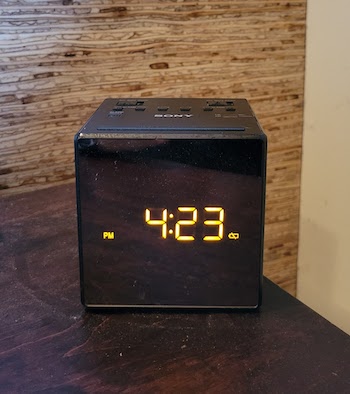
Yes, I have an old clock radio that I still use!
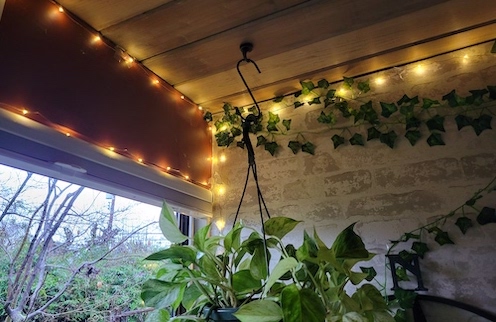
For some reason, these lights always go on after a blackout and have to be turned off.
Some of these clocks have backup batteries, but those go dead and I fail to replace them or, sometimes, I can’t figure out how.
In general, though, these short outages aren’t a big deal. Even if it happens during the day, I’ll notice that the lights don’t work but I can still get work done. (2) Yes, I have to be careful opening the refrigerator and freezer. And if I were cooking something and the oven stopped working, it would be a real pain, but I don’t recall that ever happening. The electric space heating and water heating never cross my mind. The hot water keeps working (the tank stays hot), the house stays comfortable (it’s pretty well insulated). The EV battery stays at whatever it was, which is normally around three-quarters full.
So, for our household at least, an occasional multi-hour outage is not a big deal, and the worst part is resetting everything when it’s over.
What about longer outages, you may be wondering? They are not common, but I had a nine-hour outage a month ago when they were replacing some phone poles in the neighborhood. It was a cool day (high of 55), and the temperature inside was about 68 when the electricity went out around 9am. When it came back on around 5pm, the temperature was around 65. That’s a little cool but not awful. I was fine with an extra layer and/or a blanket. And the hot water still stayed mostly hot. The internet stopped working after 5-6 hours (the battery in the UPS ran out), but otherwise it was just a regular outage, not too exciting.
When it was over, the heater ran for about 3 hours longer than it normally would that evening, and the water heater maybe 1-2 hours more. It helped that the outage was planned -- I could move my car out of the garage before the power went out, so I didn’t have to manually open it. Plus I knew the outage would be over around 5pm, so I didn’t have to worry about dinner or about going 24 hours without heat. But the “all-electric” aspect of the outage? It pretty much made no difference.
Most modern gas furnaces and boilers need some electricity to operate, so I’m wondering if any of you had a cool house or water during an outage over this past week or two. If so, I’d love to hear in the comments what your experience was and if you took anything away from it. I would have second and third thoughts electrifying a house in a cold and outage-prone place like Tahoe, or in a PSPS area where multi-day outages are not uncommon. But here? I don’t see the issue. But I’d love to hear what you all have to say after the past few weeks.
Notes and References
0. One thing I love about all this rain is how good it is for the plants around here, especially the trees but also the shrubs. Here is a picture of a camellia that I love that is just outside my kitchen window.

The rain is great for our plants
1. Ironically, even though this blog is not about cheese, many aggregators and search engines will pick up that first picture and highlight it along with the blog. So we’ll have a blog about power outages with an accompanying picture of homemade cheese. And people wonder why journalism is struggling…
2. If you don’t have a UPS (Uninterruptible Power Supply) for your router, I’d recommend it. It’s basically a big battery that you plug in to the outlet where your modem and router are plugged in, then you plug those into the battery instead. When the power goes out, it just keeps powering your modem and router.
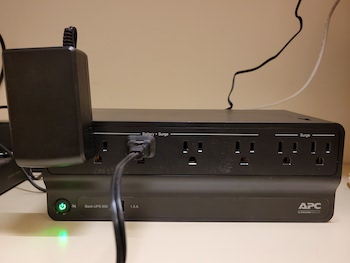
An uninterruptible power supply powers a modem and router when the power goes out, and can charge other things that are plugged into it.
Current Climate Data (December 2022)
Global impacts, US impacts, CO2 metric, Climate dashboard
The last nine years have been the warmest on record.
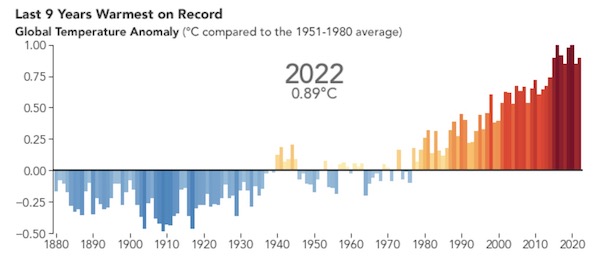
Source: NASA’s Earth Observatory
Comment Guidelines
I hope that your contributions will be an important part of this blog. To keep the discussion productive, please adhere to these guidelines or your comment may be edited or removed.
- Avoid disrespectful, disparaging, snide, angry, or ad hominem comments.
- Stay fact-based and refer to reputable sources.
- Stay on topic.
- In general, maintain this as a welcoming space for all readers.



